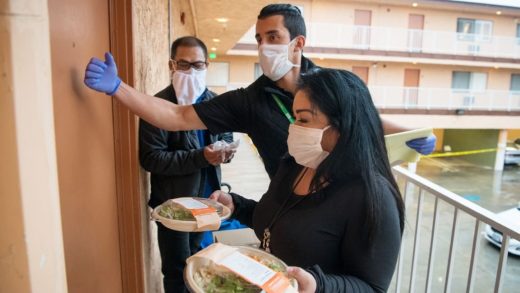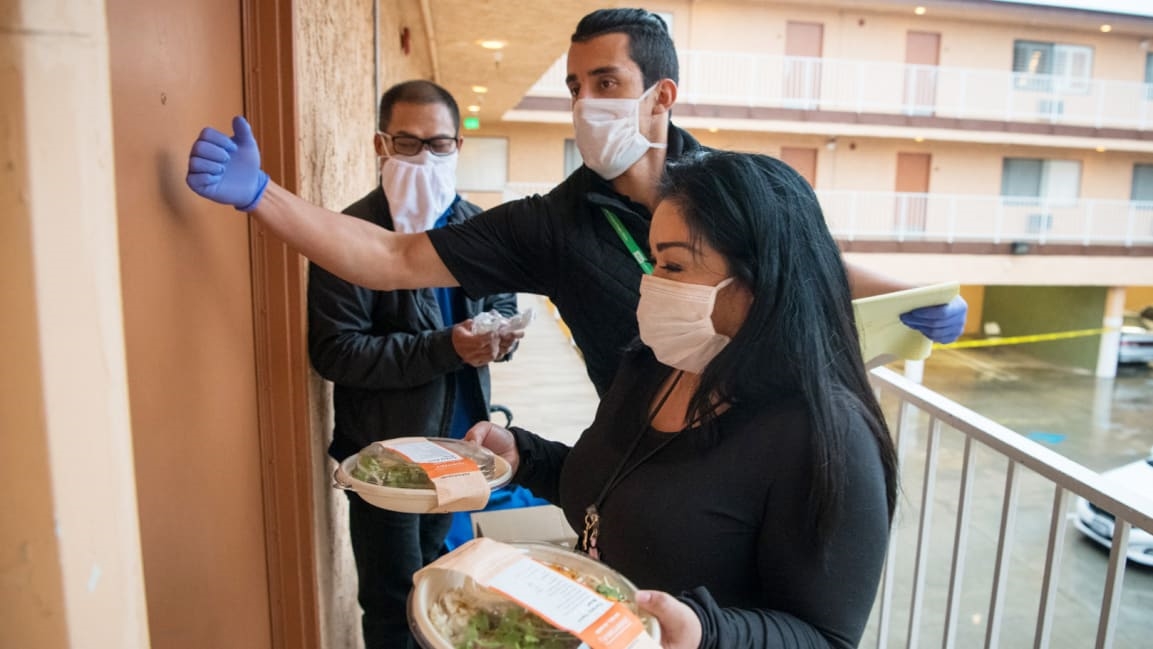How this Los Angeles healthy restaurant chain pivoted to emergency relief
When the L.A. restaurant chain Everytable opened its first café four years ago in a food desert in South Los Angeles, its goal was to find a new way to expand access to healthy food for the city’s lowest-income residents. When the coronavirus crisis hit, its business transformed: While it still sells some takeout and delivery meals, the bulk of its business is now emergency relief.
Nearly 300,000 free meals, funded by government agencies, will go to more than 1,000 homeless residents now sheltered at local hotels. One hundred thousand free meals will be delivered to seniors at home. Another 168,000 meals, paid for by donors and foundations, will go to thousands of foster youth and low-income college students. Over a three-month period, the company expects to provide at least a million emergency relief meals. (For context, that’s as many as it sold in total over its first three years of operation.)
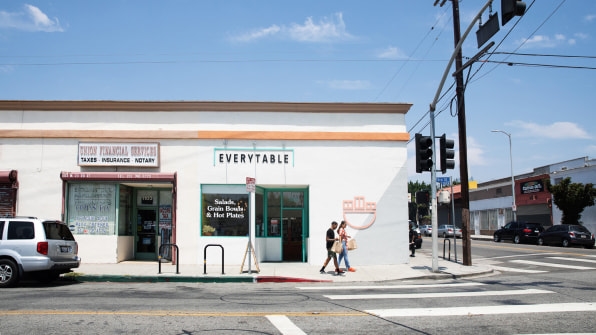
The chain first took action when California’s governor announced on March 13 that seniors should say at home, days before the statewide lockdown started. “We knew that seniors in Brentwood and Beverly Hills could just order Postmates and Instacart,” says CEO and cofounder Sam Polk. “Seniors in Compton and South L.A. might not be accustomed to that and didn’t have the money to cover the extra delivery fees. So there was going to be a big problem when it came to access to food.”
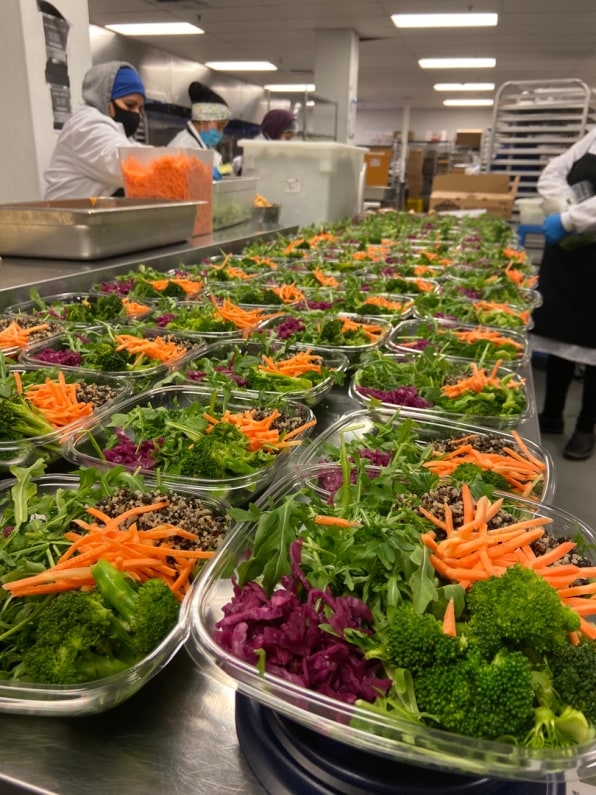
The next morning, the restaurant launched a local “helpline” that anyone can call if they are having trouble getting food. For some people who can’t afford food and are able to come to one of the chain’s retail locations, the restaurant connected them with its “pay it forward” program that it runs where other customers pay for extra meals. In other cases, it connects people with the closest food banks or pop-up drive-through food giveaways, or helps them sign up for the city’s free emergency meal program for seniors.
“Pretty soon, it just became apparent that our stores, which were our core business before this, had basically been crushed by coronavirus,” he says. “But the demand for healthy food hadn’t changed and, in fact, was growing. It was just that it was in a different form and in different places. Very quickly, we said, we’re in the business of providing emergency relief. And we restructured our entire organization.”
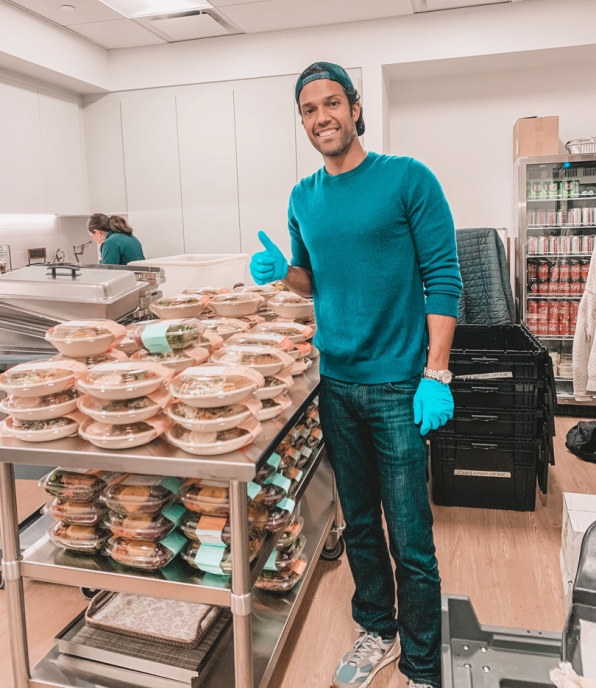
The restaurant started working with government agencies to provide meals to people at the city’s first emergency shelters in March. Now, as the state’s Project Roomkey program connects people experiencing homelessness with hotel rooms—leasing entire hotels to meet the demand—Everytable is providing multiple meals a day. “Every time they lease a hotel, Everytable comes in and sets up refrigeration and water service and then starts supplying the food three meals a day for all of those people and the staff,” Polk says.
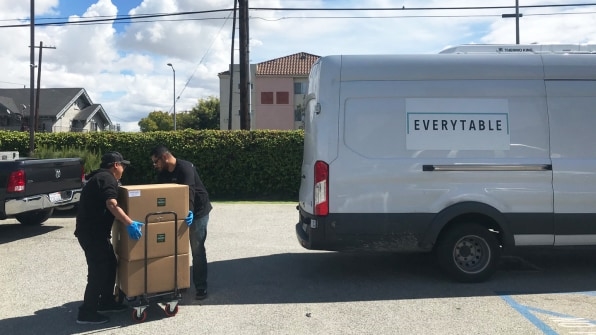
It’s also supplying food for the city’s newly-expanded senior meal program, which delivers free food to seniors sheltering in place. “The emergency relief food infrastructure in this city, and I’m sure this is true for every city, is really built around how you get people to come to the food, whether it’s food banks or soup kitchens, but for seniors in the time of coronavirus, that’s just not an option given how vulnerable they are to this virus,” he says. “So now cities are faced with a much more difficult question, which is how do you get food to these seniors at their homes?”
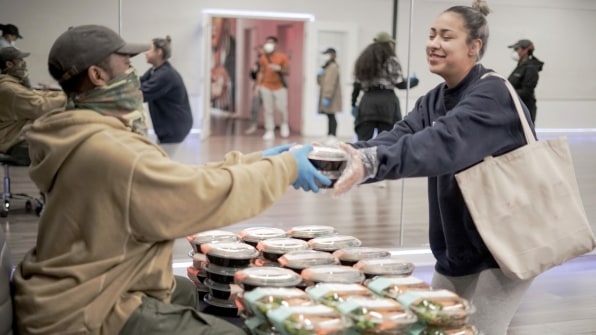
The infrastructure that the restaurant chain already had in place—centralized production and a fleet of refrigerated vehicles—happened to fit the challenge. The company is hiring hundreds of kitchen employees and dozens of delivery drivers; it also just moved into a kitchen four times the size of its previous kitchen, while keeping the first space operating.
It expects that the business will look different for a long time. “Homelessness was a big problem while the economy was on fire,” Polk says. “Now the economy has gotten basically decimated, so that issue is only going to get worse. Until there’s a full vaccine, the pressure to keep people off the streets has gone through the roof. There’s going to be a need to keep people in shelters and a need to feed those people.” The same is true for seniors, who will likely need meal delivery until there’s a vaccine. At that point, the company will go back to its focus on cafés. “I think the good news for our business is that by having this centralized production model, our businesses are very adaptable,” Polk says. “Our mission is to make healthy food affordable and accessible for anybody, and we’re not wedded to a particular channel. All we’re wedded to is being of service to our city.”
(33)

